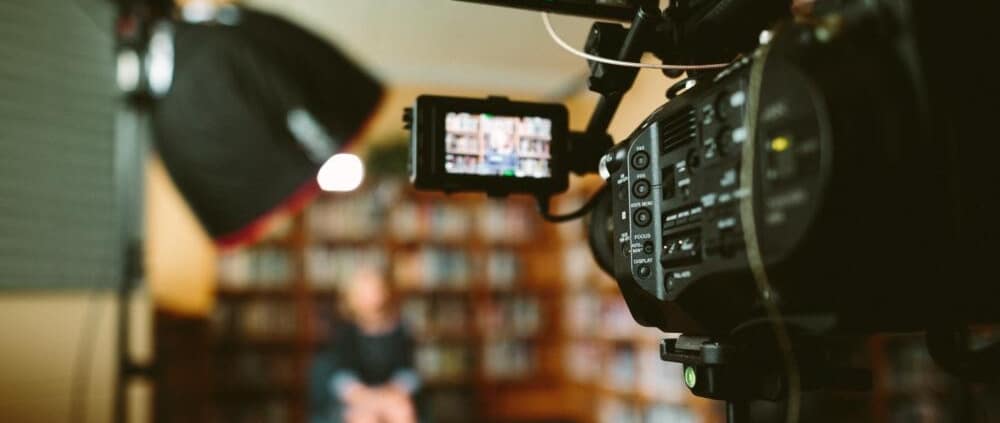DOES COPYRIGHT LAW PROTECT RECORDED INTERVIEWS? IF SO, WHO OWNS THE COPYRIGHT?
On January 30, 2023, former President Donald J. Trump filed a lawsuit against author Bob Woodward, and publishers Simon & Schuster and Paramount Global alleging that their release of transcripts from Woodward’s interviews with Trump between December 2019 and August 2020 in the form of audiobooks and CDs entitled “The Trump Tapes” which was released in October 2022. In his complaint, Trump contends that he was only agreeing to be recorded for the sole purpose of Woodward being able to write a single book – “Rage”, which was published in September 2021, and seeking a declaration from the Court that he, not Woodward and the publishers, is the owner of copyright for the interview sound recordings.
Are Recorded Interviews Protectable under U.S. Copyright Law?
The Copyright Act of 1976 protects “original works of authorship fixed in any tangible medium of expression.” Accordingly, an interview is protected by copyright only if it satisfies the “originality” and “fixation” requirements of U.S. copyright law. The originality requirement is seldom an issue for an interview, and, in the case of Woodward’s interviews with Trump, the requirement is almost certainly satisfied. The fixation requirement is met so long as the copy “sufficiently permanent” to allow it to be perceived, reproduced, or communicated. An audio recording, which is at issue here, provides a verbatim account of the interview and certainly satisfies the fixation requirement. Other, less precise methods of recording, such as shorthand or note taking, could present issues with the fixation requirement.
Copyright law also requires that the work be made “under the authority of the author” for protection to exist. In the interview scenario, that requires that the interviewee actually consented to the interview and to it being recorded. Trump does not allege that the interview was conducted without his consent, so this element would appear to be satisfied as well.
Thus, the recorded interviews between Woodward and Trump appear to be protectable under U.S. Copyright Law. They are original, fixed, and were conducted with the consent of the interviewee, Mr. Trump,
Who Owns the Copyright to the Recorded Interviews?
Now that we have established that the recorded Woodward/Trump interview qualifies for federal copyright protection, who owns the copyright to that interview? Woodward? Trump? Simon & Schuster? Under federal copyright law, absent a written agreement stating otherwise, the author is the owner of a copyright. But in an interview, who is the “author”? Is it Woodward, the interviewer–the person who ultimately controled the questions asked and the format of the interview? Or is it Trump, the interviewee–the person whose words and ideas are expressed throughout the interview? As you might expect, the law is not crystal clear on that issue and there are several possible answers.
One line of cases decided by Federal Courts between 1966 and 2000 would find in favor of Woodward, holding that the interviewer was the copyright owner of an interview. Those Courts reasoned that, although the interviewer might not be the copyright owner of the interviewee’s quotations, the interviewer would be the copyright owner of the compilation that includes the interviewee’s quotations and the interviewer’s questions, comments, and paraphrasing. One of these decisions also stated that the interviewee’s responses during the interview were not protectable “expressions” under copyright law but were merely “ideas” that not protected under copyright law. If the Court in the case recently filed by Trump follows this reasoning, copyright ownership to the interview lies with Woodward and the publishers and not with Trump.
Other Federal Court cases have granted the interviewee copyright ownership for his/her words. In cases where the parties have agreed in writing that the interviewee will be the copyright owner, this will always be the case. However, there is no mention in Trump’s complaint of a written agreement to that affect, so we have to dig a little deeper. Another instance where an interviewee may be recognized as the copyright owner of an interview is when the interviewer violates the interviewee’s right of publicity. It appears Trump may be playing that card since, in his complaint, he claims that “President Trump’s voice is one of the most recognizable voices in the world and hearing his words from his mouth or as directly articulated by him, is much more valuable and marketable than Woodward’s interpretation of the interviews in Rage.”
Something known as the “dual approach”, where the interview is treated as two distinct and separate works: format, organization, questions, comments and paraphrasing of responses owned by the interviewer and verbatim quotes in answers owned by the interviewee, is another possibility. While some legal scholars and the U.S. Copyright Office are supportive of this approach, it does not appear to have been adopted by any federal court in a binding decision to date
One last scenario would be to treat the interview as a single work where the interviewer and interviewee collaborated as joint authors. If that were the case, both Woodward as the interviewer and Trump as the interviewee would own an undivided interest in the entire interview. This would allow them to either make joint decisions regarding exclusive use of the work, or would allow either of them individually to exercise non-exclusive control over the work without obtaining permission from the other owner as long as an accounting is provided to that other owner. While Trump specifically denies that it was his intent to create a joint work, he does include a claim for an accounting should the court adopt this approach. Again, like the dual approach, there do not appear to be any binding federal court decisions adopting this approach at this time.



